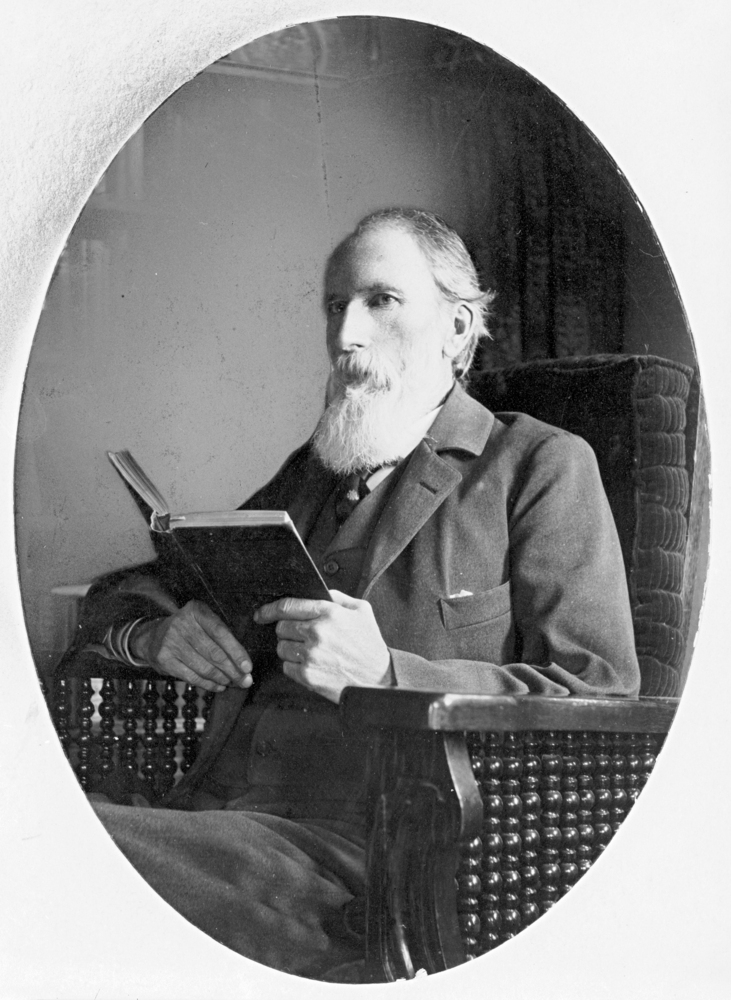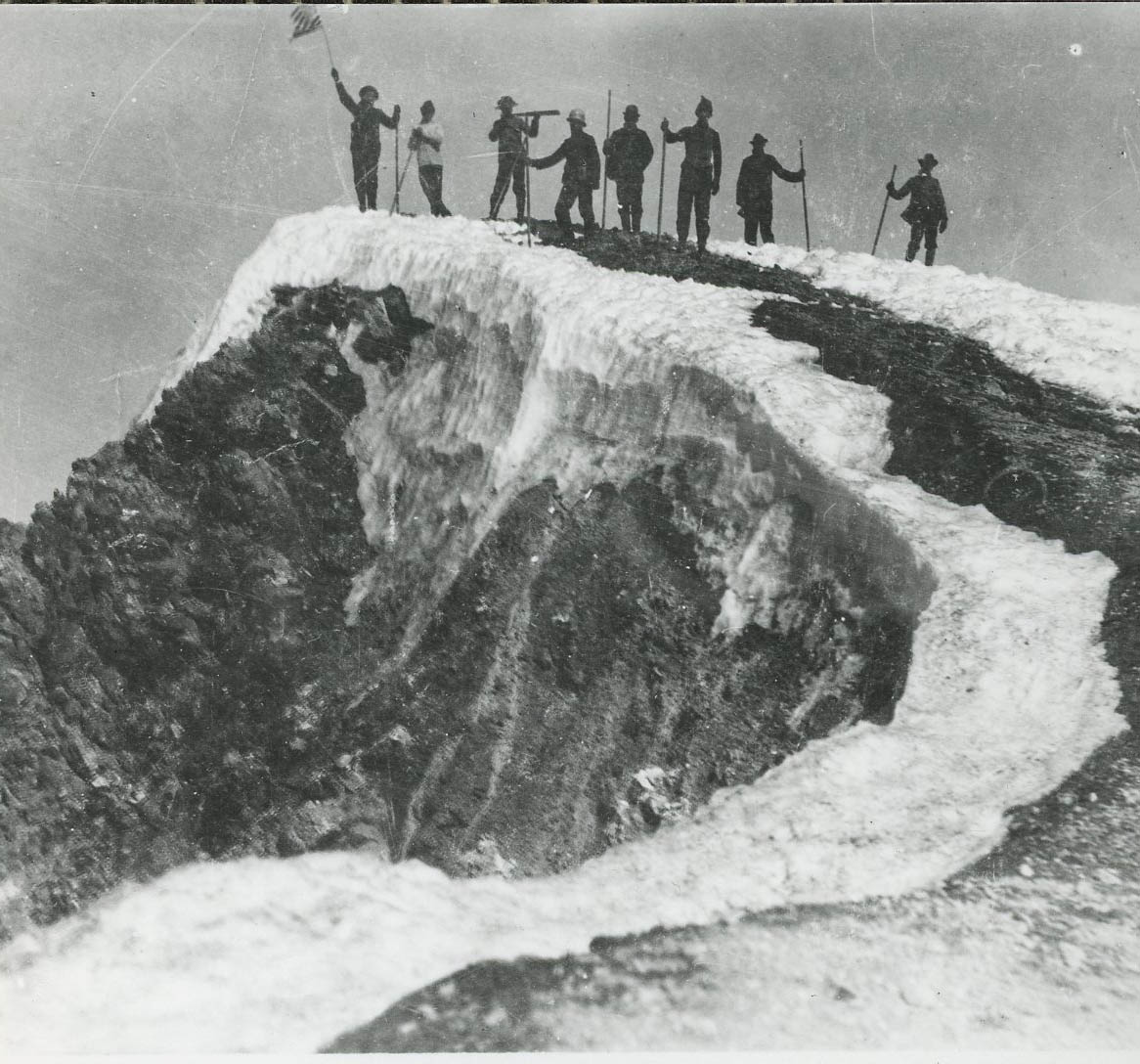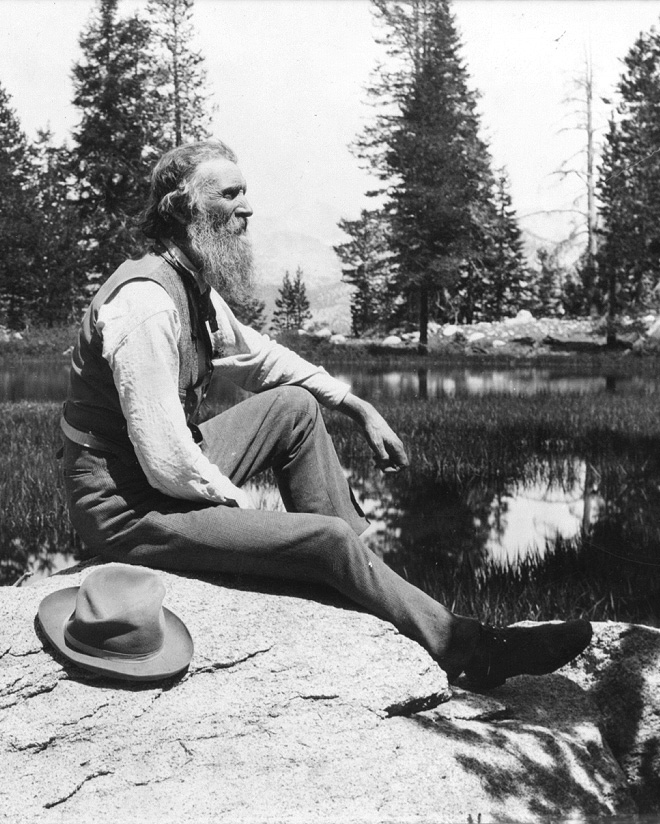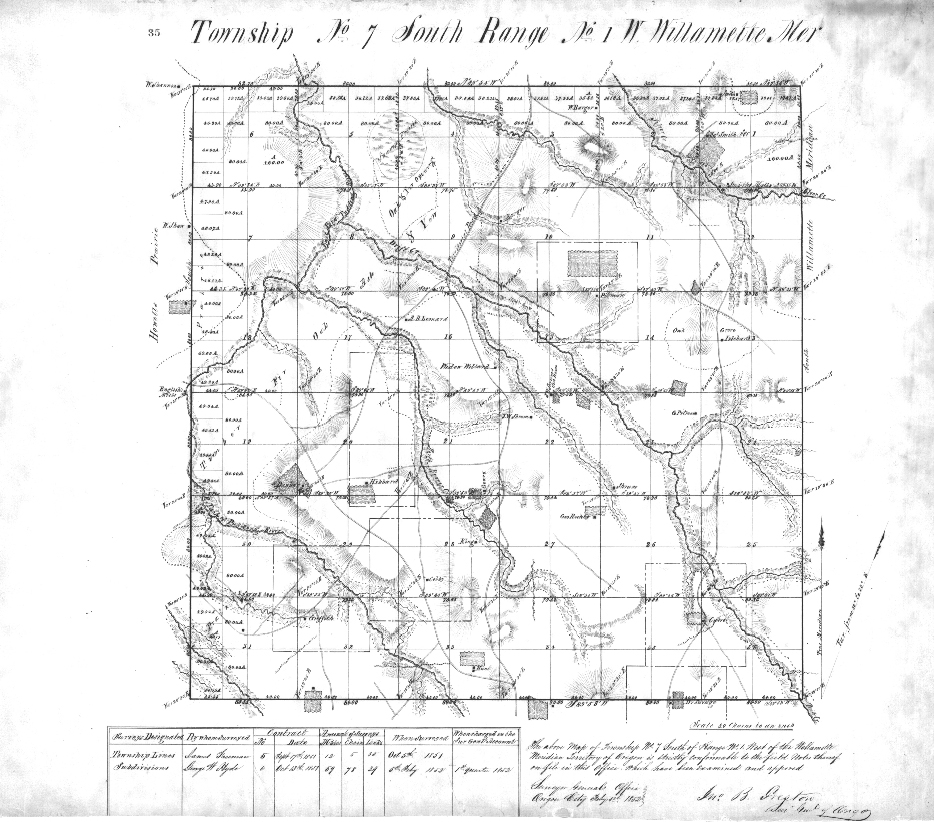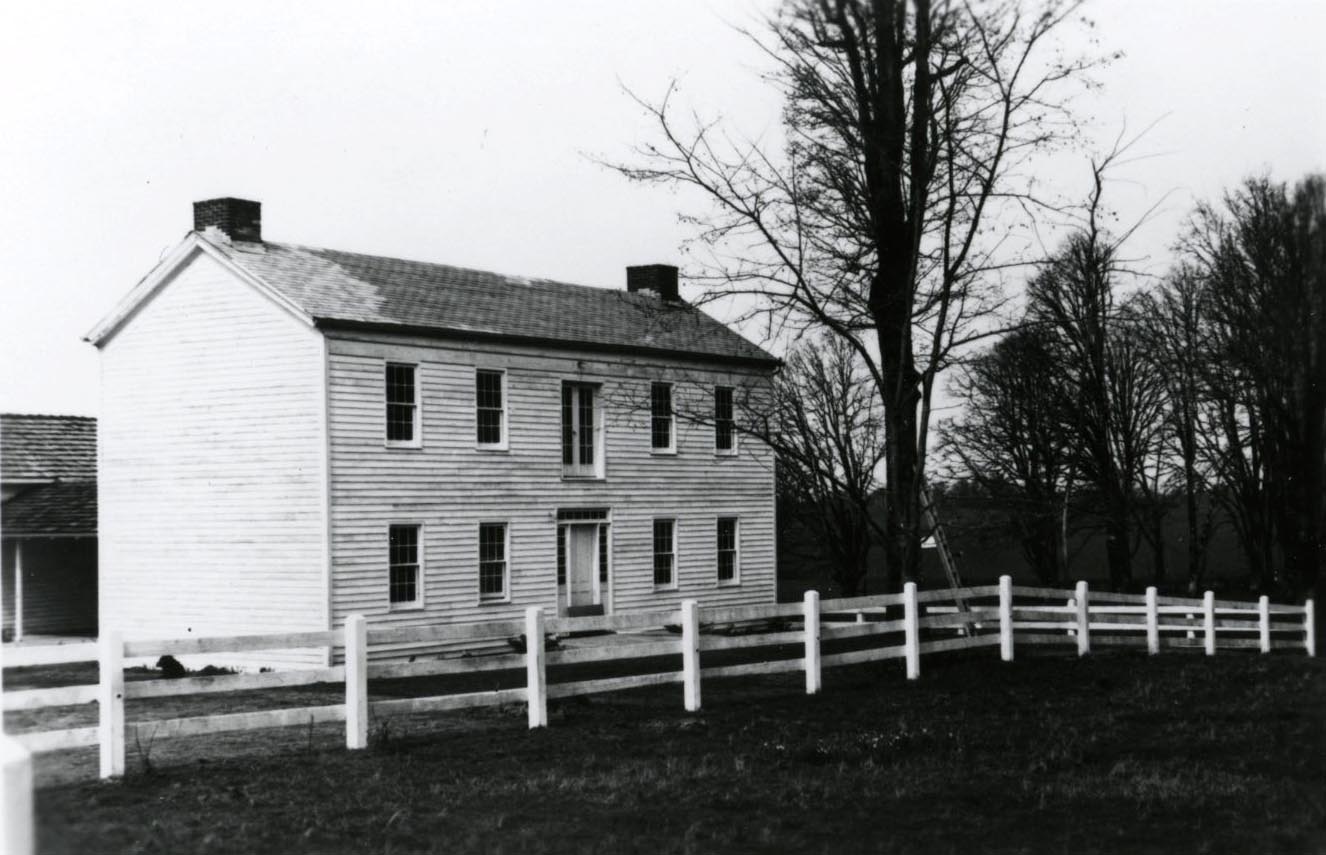John Breckenridge Waldo was the first Oregon Supreme Court chief justice born in the state. He may be best known as an outdoorsman and proponent of forest conservation for the Cascade Range.
Waldo was the third son of Virginians Daniel and Malinda Waldo. The Waldos had joined the "Great Emigration" wagon train to Oregon only the year before and were fresh arrivals to the Willamette Valley when John was born in 1844. He grew up on his parents' Donation Land Claim farm in the Waldo Hills east of Salem.
Suffering from asthma, Waldo was taken by older brother William on annual forays into the Cascades for relief from the Willamette Valley's smoke-filled summers. During those years, he came to know the area between Mount Jefferson and the Three Sisters and became an avid hunter and fisherman.
In 1863, Waldo graduated from Salem's Willamette University and married Clara Humason of The Dalles. They had one daughter. After studying law and passing the bar, he spent the 1870s as an attorney in Salem, with another office in Portland. In 1880, he won election to the Oregon Supreme Court, spending the last two years of his six-year term as chief justice. Defeated for re-election in 1886, in 1888 he won office as Marion County's representative in the state legislature, serving one term before retiring to his farm and his favorite pursuits—traveling among and writing about the mountains.
During the 1880s, Waldo expanded his summer travels to include the area between Mount Hood and Crater Lake. During those treks, typically accompanied by a few close friends, Waldo kept a diary and wrote letters to his wife, describing the landscape and expressing alarm at the devastation of the High Cascades by sheepmen and of the mountains' lower slopes by loggers and homesteaders.
In 1888, preparatory to his service as a state representative, Waldo and four others traveled by horseback along the entire Cascades' crest, from Mount Jefferson to Mount Shasta, ascending to Shasta's summit on September 26.
During the 1889 legislative session, Waldo unsuccessfully introduced a "memorial to Congress," urging the establishment of a huge forest reserve stretching the length of the Cascades, from the Columbia River to the California state line, to protect its "wildness, game, fish . . . fowl, its scenery, the beauty of its flora, the healthfulness of its atmosphere." Throughout the 1890s and until his death in 1907— he fell ill while near the base of Mount Jefferson — Waldo wrote countless letters in support of forest conservation to Oregon newspapers. His campaign won reward in 1893, when President Grover Cleveland proclaimed the Cascade Forest Reserve.
Waldo spent subsequent years promoting preservation of and protective management for the reserve. He also joined with William G. Steel and others to lobby for a national park at Crater Lake and—during an era of depredation by commercial hide hunters and local residents—urged enforcement of the state's new game laws.
Some have called Waldo "Oregon's John Muir," although he reportedly had a rather shy, self-effacing personality and did not gather people around him. Waldo's obituary read, "To him the mountains were . . . a book to which there was no end. The beauty of the hills was a sermon." In no small measure, Oregonians owe the existence of the state's six national forests, eighteen wilderness areas, and one national park to Judge John Waldo. Waldo Lake, north of Willamette Pass, is named for him.
-
![]()
Judge John Breckenridge Waldo.
Oregon Historical Society, OrHi 64412
Related Entries
-
![Cascade Mountain Range in Oregon]()
Cascade Mountain Range in Oregon
The Cascade mountain system extends from northern California to central…
-
![John Muir in Oregon]()
John Muir in Oregon
John Muir (1838-1914) was America’s pioneer conservationist and an outs…
-
![Waldo Hills]()
Waldo Hills
The Waldo Hills are situated on the east side of the mid Willamette Val…
-
![Waldo House]()
Waldo House
The Daniel and Melinda Waldo House, constructed in 1854 in the Waldo Hi…
-
![Waldo Lake]()
Waldo Lake
Located astride the backbone of the Cascade Mountains in the Willamette…
-
![William Gladstone Steel (1854–1934)]()
William Gladstone Steel (1854–1934)
Born in Ohio on September 7, 1854, William Gladstone Steel was raised i…
Related Historical Records
Map This on the Oregon History WayFinder
The Oregon History Wayfinder is an interactive map that identifies significant places, people, and events in Oregon history.
Further Reading
LaLande, Jeff. "A Wilderness Journey with Judge John B. Waldo, Oregon's First ‘Preservationist'." Oregon Historical Quarterly 90:32 (Summer 1989).
Williams, Gerald, ed. Judge John Breckenridge Waldo: Diaries and Letters from the High cascades of Oregon, 1880-1907. Roseburg: Umpqua National Forest, 1986.

